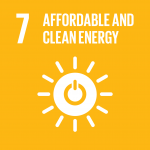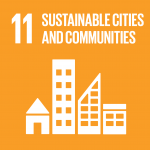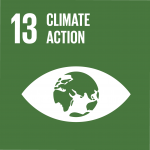How Mauritius’ energy transition will support its COVID-19 recovery

Beyond a public health crisis, Mauritius, like other Small Islands Developing States (SIDS) that heavily rely on tourism and imported goods, is facing the harsh impacts of the economic downturn triggered by COVID-19.
Mauritius depends on imported fossil fuels to power its economy. 84 percent of the nation's primary energy requirements are met by imported fossil fuels like oil and gas. The energy sector alone accounts for 62 percent of Mauritius’ total greenhouse gas emissions.

A thermal power plant in the capital city of Port Louis. © UNDP Mauritius
Determined to break its dependence on imported fossil fuels and reduce its emissions, the Government of Mauritius has set ambitious climate targets under the Paris Agreement.
By 2025, the country aims to have 35 percent of its electricity produced by renewables, a significant increase from 18.4 percent in 2018. To make this a reality, Mauritius has embarked on a journey towards a low carbon economy.
With the support of the United Nations Development Programme, funding from the Green Climate Fund, and in partnership with the Agence Française de Développement, the country is working to increase its share of renewables and strengthen the existing power grid.
The economic crisis triggered by COVID-19 reinforces the urgency of the country’s climate targets and provides SIDS with an opportunity to restart the pillars of their economy with less reliance on fossil fuels.
Here are three reasons why Mauritius will benefit from following the course of its ambitious energy transition:
1. Clean energy is an engine for job creation and poverty alleviation.
The production, installation, and maintenance of renewable energy equipment – from solar panels to batteries and wind turbines – creates new jobs. In 2018, a record 11 million people worldwide were employed in the renewables sector, and the International Renewable Energy Agency (IRENA) estimates that this number could rise to 42 million jobs globally by 2050.
Boosting investments will help open up new employment opportunities. The Mauritius Renewable Energy Agency and the Utility Regulatory Authority, established with UNDP’s support, will help create an enabling environment for renewable energy investments.
Beyond supporting livelihoods, access to clean energy has a wide range of development and climate benefits that will help Mauritius weather the storm during and after COVID-19.
It can reinforce local health systems by providing access to energy, which is critical to enable mobile clinics to operate. It makes stay-at-home policies viable for all by powering the devices we need to communicate, access information and continue education or work from home.
To help bring clean, reliable and affordable energy to where it’s needed, the project will help the country deploy an additional 25 MW of solar power, including a mini-power grid in Agalega, one of the outer islands.

A solar PV farm in Henrietta © UNDP Mauritius
2. Affordable and clean energy is critical for Mauritius to meet its climate targets and to adapt to the impacts of climate change.
The climate crisis remains a global emergency, and SIDS are at its very forefront. Increasingly severe and frequent cyclones, rains and floods are already threatening people’s livelihoods in some parts of the country. Clean energy technologies can provide cost-effective and sustainable solutions that will help vulnerable communities prepare and adapt to these impacts and recover in the aftermath of COVID-19.
Mauritius has pledged to be part of UNDP’s Climate Promise, and renewable energy will be central to enhance the country’s Nationally Determined Contributions (NDCs).
The country’s energy transition project is expected to significantly contribute to the country’s greenhouse gas emissions reduction targets. The estimated impact is a reduction of 4.3 million tCO2e over the lifetime of the investments enabled by the project.

The new Metro Express Light Rail will help reduce the country’s greenhouse gas emissions while improving public transport for its inhabitants. Photo: @UNDP Mauritius/Stephane Bellerose
3. Clean energy increases SIDS’ energy security.
For island nations like Mauritius, boosting the ability to produce their own energy helps to increase energy security. Oil prices are not only highly volatile but supply interruptions and shocks to the global energy system can have devastating consequences. As the call for fossil fuel subsidies reform is gaining strength, now is the time to continue the decarbonization of the economy.
In the aftermath of COVID-19, reliable electricity will be key to support businesses and boost the economy. That’s why as part of the low carbon economy project, Mauritius is finalising a National Grid Code, which will ensure that the electricity grid operates in a safe, reliable, and economically viable way.
The economic recovery from the COVID-19 crisis will not be painless. But SIDS have a tremendous opportunity to restart their economies and reduce their dependence on fossil fuels by advancing investments in clean energy. The ambitious energy transition plans started by Mauritius before the pandemic show the way forward to create a healthier, fairer future for all.
For Further Details:
Jana Imrichova
Technical Specialist for Climate Change, UNDP
Shakil Beedassy
Project Coordinator, GCF-Low Carbon Economy project, UNDP Mauritius





